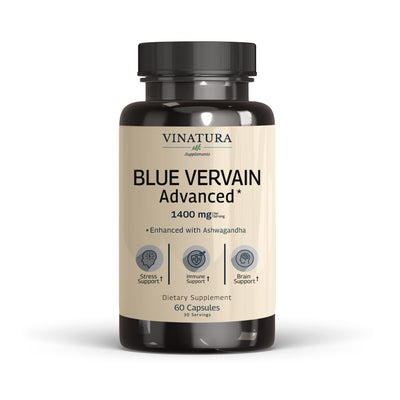
When is the Best Time to Take Rhodiola Rosea? Morning or Night?
One of the most common questions users ask about Rhodiola is when is the best time to take it.
This article will discuss the optimal times to use Rhodiola, from morning to evening, and special situations that require consideration.
Users can maximize Rhodiola's benefits for optimal health by understanding when to use it.
Before exploring further, please read the disclaimer located at the end of this webpage.
When is the Best Time to Take Rhodiola Rosea?

Morning is the ideal time to take Rhodiola Rosea because it provides energy and enhances focus for a productive day.
According to the study "Efficacy and tolerability of a Rhodiola rosea extract in adults with physical and cognitive deficiencies," taking 2 capsules after breakfast was more effective than taking 1 capsule after breakfast and 1 capsule after lunch [2].
Rhodiola is known to stimulate the nervous system, helping to reduce stress and boost brain function. Rhodiola also improves memory, concentration, and logical thinking, allowing you to work more effectively.
A study of 101 adults experiencing life stress symptoms who received Rhodiola root extract (200 mg, twice daily) showed significant improvements in stress symptoms, fatigue, quality of life, mood, focus, and cognitive decline [1].
When used in the morning, Rhodiola can help start the day with confidence and energy to face the day's challenges and tasks.
Pre-Workout
Using Rhodiola Rosea before exercise provides significant benefits for physical and mental performance. Rhodiola stimulates increased energy and endurance, improving athletic performance and training efficiency.
Research has shown that combining Rhodiola with Ginkgo can improve endurance performance by increasing oxygen consumption and protecting against fatigue [3].
This herb can help improve your body's endurance, allowing you to exercise longer and more effectively without getting tired too soon.
In addition, Rhodiola can also help boost mental focus and concentration during exercise, helping you focus on your goals and efforts optimally.
The stimulation from Rhodiola can also help boost morale and confidence, making it easier to perform complex exercises or challenge yourself with new goals.
With these benefits, using Rhodiola before exercise can help users maximize their time and energy and achieve optimal training performance.
When You Need to Be Relaxed
Rhodiola also helps improve mood, increasing the production of serotonin and dopamine, neurotransmitters related to feelings of happiness and joy [4]. This will make people feel more optimistic about life.
Additionally, Rhodiola acts as an adaptogen, helping the body fight stress and fatigue and improve work performance. Rhodiola rosea helps regulate cortisol, the stress hormone, helping you feel calmer and more relaxed [4].
Rhodiola can help improve mood and boost optimism. Relaxation is an important part of the relaxation process, and Rhodiola can help you achieve it.
Should You Take Rhodiola Before Bed?

While Rhodiola can help reduce stress and may help you sleep better, it can also make it difficult to fall asleep if taken too close to bedtime.
Rhodiola should be taken early in the day because it can interfere with sleep or cause vivid dreams (not nightmares) for the first few weeks of use [5].
Timing to Take Rhodiola for Special Conditions
While Rhodiola can generally be taken in the morning, there are recommendations for specific conditions depending on the desired effect:
Chronic Fatigue: Rhodiola capsules can be taken twice daily, once in the morning and again in the afternoon. According to studies reporting positive effects on mental fatigue, the recommended dosage is 100–576 mg/day [6].
Anxiety, Stress, and Depression: A small study of 89 people who used Rhodiola for 42 days showed benefits in managing mild to moderate depression [7]. Studies generally indicate taking Rhodiola in the morning [8].
Athletic Performance: For athletic activity, to increase endurance and reduce muscle soreness, Rhodiola can be taken 30 minutes before exercise.
According to a study, subjects took one capsule in the morning before breakfast and one capsule in the evening before dinner for 30 days before and on the day of a marathon and for seven days after the marathon [3].
The supplementation period has been reported to help reduce inflammation and enhance muscle recovery from exercise fatigue.
For Sexual Dysfunction and Menopause: Rhodiola helps improve sexual function in men and women. It is usually used once or twice daily.
It is usually used once or twice daily, in the morning and evening to reduce menopausal symptoms, including feeling stressed, losing sleep, and mood swings [9].
Should You Take Rhodiola With or Without Food?
Rhodiola can be used either alone or in combination with food.
Taking it alone: Many people choose to take Rhodiola alone for easier dosage tracking and effectiveness monitoring.
Taking Rhodiola on an empty stomach can reduce its absorption. It can be taken in the morning before eating anything [5].
However, Rhodiola can also be taken with food. Some individuals may find it more convenient to take Rhodiola with food, especially if they have sensitive stomachs or discomfort when taken on an empty stomach.
Taking Rhodiola with food slows its absorption, reducing the risk of stomach upset.
Additionally, Rhodiola can be taken with herbs like Ginkgo and Ginseng or beverages like coffee or green tea.
Users should still pay attention to dosage and timing instructions, whether taken alone or with food. Rhodiola is typically taken in the morning or noon to harness its energy-boosting and immune-enhancing effects throughout the day.
When Does Rhodiola Take Effects?
The specific effects may vary depending on the individual or the intended use. Some people may experience short-term improvements in stress and fatigue within one or two weeks of regular use.
In a study conducted on fatigued patients managed with 400 mg Rhodiola extract for 12 weeks, patients showed improved alertness, calmness, and mood, with significant changes observed as early as the first week of use [1].
Regarding its energy-boosting and exercise-enhancing effects, studies have shown muscle strength and endurance improvements after 2 to 4 weeks of use [10].
The effects of R. rosea extract on menopausal women have also been studied. Forty menopausal women were cured with R. rosea extract (100 mg dry Rhodiola extract twice a day for 14 days or 1 mL liquid extract for 10 days).
In some participants, the management cycle was repeated 2–4 times. Normal menstruation was restored in 25 women, and 11 of them became pregnant [1].
Conclusion
The timing of Rhodiola Rosea usage depends on individual purposes and habits. However, morning is considered the ideal time to take Rhodiola.
Before exercising, Rhodiola can enhance physical and mental performance, leading to better results.
Additionally, Rhodiola can be used when feeling stressed or needing relaxation, as it improves mood and reduces stress.
Rhodiola is a safe and effective herbal supplement with many health benefits. Using the best Rhodiola supplements with proper usage can help improve health and quality of life.
Read more:
- Rhodiola Rosea for PCOS: Benefits, How to Use & Precautions
- Rhodiola For Adrenal Fatigue: How Does It Help & When To Take?
- Can You Take Rhodiola and Ashwagandha Together?
References
- [1] Ivanova Stojcheva, Emilija, and José Carlos Quintela. “The Effectiveness of Rhodiola Rosea L. Preparations in Alleviating Various Aspects of Life-Stress Symptoms and Stress-Induced Conditions—Encouraging Clinical Evidence.” Molecules, vol. 27, no. 12, 17 June 2022, p. 3902, https://doi.org/10.3390/molecules27123902.
- [2] Fintelmann, Volker, and Joerg Gruenwald. “Efficacy and Tolerability of a Rhodiola Rosea Extract in Adults with Physical and Cognitive Deficiencies.” Advances in Therapy, vol. 24, no. 4, 1 July 2007, pp. 929–939, pubmed.ncbi.nlm.nih.gov/17901042/, https://doi.org/10.1007/BF02849986.
- [3] Zhang, Zhang-jin, et al. “Dietary Supplement with a Combination of Rhodiola Crenulata and Ginkgo Biloba Enhances the Endurance Performance in Healthy Volunteers.” Chinese Journal of Integrative Medicine, vol. 15, no. 3, June 2009, pp. 177–183, https://doi.org/10.1007/s11655-009-0177-x. Accessed 30 Sept. 2022.
- [4] Amsterdam, Jay D., and Alexander G. Panossian. “Rhodiola Rosea L. As a Putative Botanical Antidepressant.” Phytomedicine: International Journal of Phytotherapy and Phytopharmacology, vol. 23, no. 7, 15 June 2016, pp. 770–783, pubmed.ncbi.nlm.nih.gov/27013349/?from_single_result=2.+Rhodiola+Rosea+L.+As+a+Putative+Botanical+Antidepressant, https://doi.org/10.1016/j.phymed.2016.02.009. Accessed 10 June 2020.
- [5] Richard P. Brown, M.D, and Zakir Ramazanov, Ph.D., D.S. Rhodiola Rosea a Phytomedicinal Overview. 2002.
- [6] Ishaque, Sana, et al. “Rhodiola Rosea for Physical and Mental Fatigue: A Systematic Review.” BMC Complementary and Alternative Medicine, vol. 12, no. 1, 29 May 2012, https://doi.org/10.1186/1472-6882-12-70.
- [7] Darbinyan, V, et al. “Clinical Trial of Rhodiola Rosea L. Extract SHR-5 in the Treatment of Mild to Moderate Depression.” Nordic Journal of Psychiatry, vol. 61, no. 5, 2007, pp. 343–8, www.ncbi.nlm.nih.gov/pubmed/17990195, https://doi.org/10.1080/08039480701643290.
- [8] Olsson, E., von Schéele, B., & Panossian, A. (2008). A Randomised, Double-Blind, Placebo-Controlled, Parallel-Group Study of the Standardised Extract SHR-5 of the Roots ofRhodiola roseain the Treatment of Subjects with Stress-Related Fatigue. Planta Medica, 75(02), 105–112. https://doi.org/10.1055/s-0028-1088346
- [9] Gerbarg, Patricia L., and Richard P. Brown. “Pause Menopause with Rhodiola Rosea, a Natural Selective Estrogen Receptor Modulator.” Phytomedicine, vol. 23, no. 7, June 2016, pp. 763–769, https://doi.org/10.1016/j.phymed.2015.11.013. Accessed 11 Feb. 2020.
- [10] Katrien De Bock, Eijnde, B. O., Ramaekers, M., & Hespel, P. (2004, June). Hespel Acute Rhodiola rosea intake can improve endurance exercise performance. ResearchGate; Human Kinetics. https://www.researchgate.net/publication/8452283_Hespel_Acute_Rhodiola_rosea_intake_can_improve_endurance_exercise_performance
Author

Product Disclaimer
Including an ingredient or study does not evaluate, endorse, or recommend any Vinatura product or any third-party product. Some ingredients discussed may not be used in any Vinatura product.
The content of the articles has not been evaluated by the Food and Drug Administration (FDA) and is not intended to promote or endorse any specific product. Any products sold on this website are not intended to diagnose, treat, cure, or prevent any disease.
Opinions and Endorsements
Any claims, statements, or opinions expressed in the articles are those of the author(s) and do not necessarily reflect the views or opinions of the manufacturers of the dietary supplement products. The products sold on this website are separate from the content of the articles and are not directly endorsed or associated with the information presented here.
Liability Disclaimer
The author(s) of the articles, website, and manufacturers of the dietary supplement products do not assume any liability for any potential consequences arising from the use of the information provided in the articles. Ingredient effects, dosages, and safety vary by individual, formulation, and context; some ingredients interact with medications or may be unsuitable during pregnancy or lactation. It is recommended that individuals consult with a qualified healthcare professional before making any dietary or lifestyle changes, including the use of dietary supplements.
Product Usage
Please refer to the product labels and packaging for specific usage instructions and guidelines for the dietary supplement products sold on this website.
Customer Support
For any concerns or questions regarding the dietary supplement products, please contact our customer support team, who will be more than happy to assist you.





Leave a Comment
Be the first to comment.
What do you think?